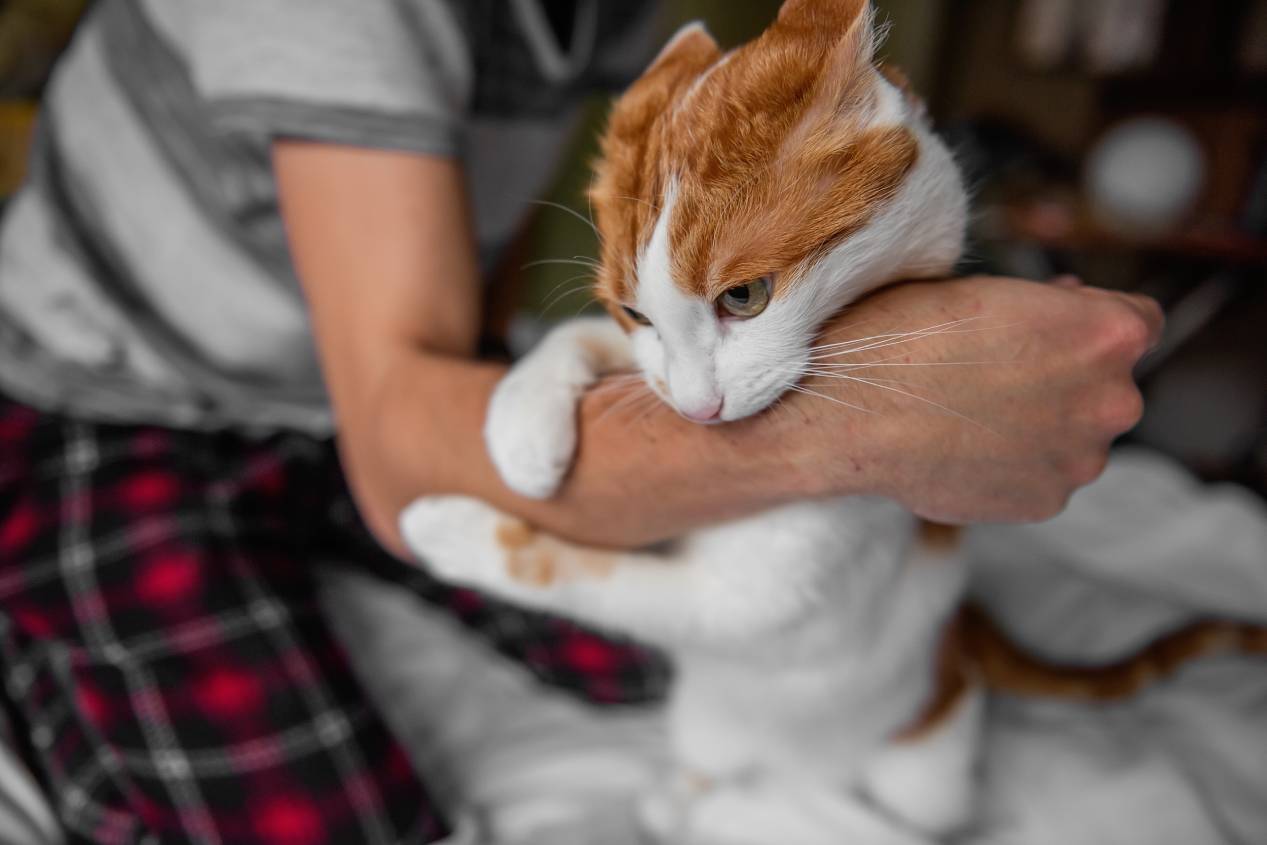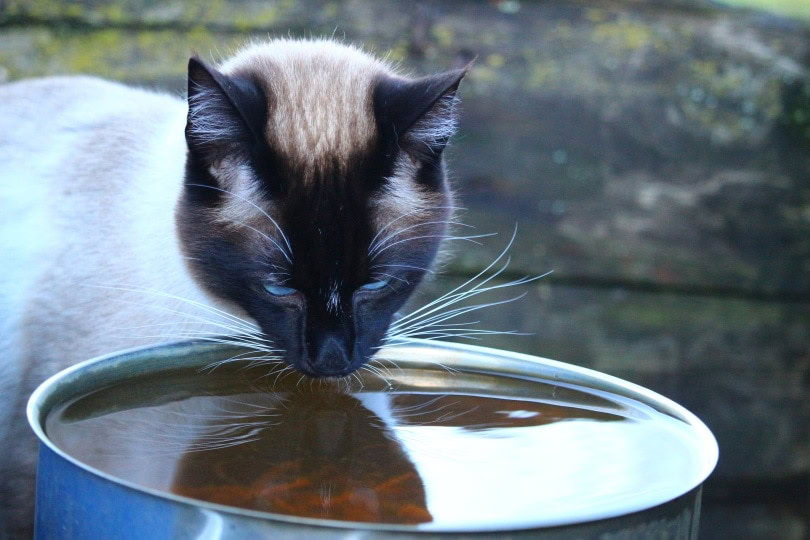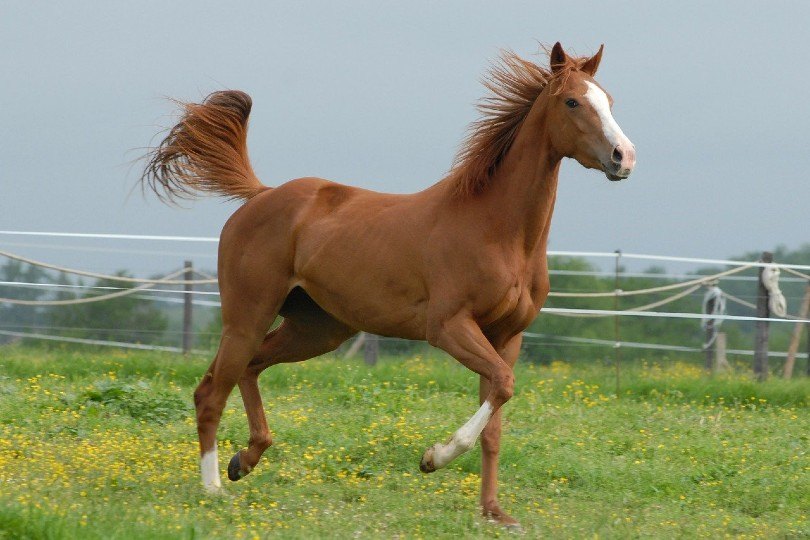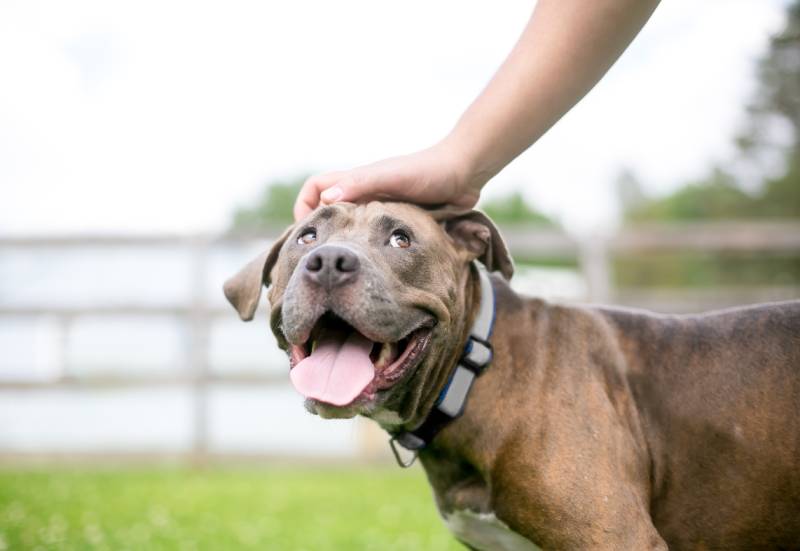VET APPROVED

The information is current and up-to-date in accordance with the latest veterinarian research.
Learn more »Click to Skip Ahead
Cats are intriguing animals with moods that can seemingly swing in an instant. One second, they can be purring and loving attention and the next, they scratch or nip at you. Learning cat communication is an art. Generally, cats do not bite for no reason. They will usually bite because they are playing, mistake you for a toy or prey, or because you are doing something that is irritating them or even causing discomfort. Generally, when we talk about hand biting, it is quite gentle and isn’t combined with growling or hissing.
Below are six reasons why your cat might be displaying this particular activity, as well as a guide on how you can help stop it.

The 6 Reasons Why Your Cat is Grabbing Your Hand and Biting You
1. Learning
Very young cats and kittens are still learning the ropes. They may not know what is considered acceptable and what isn’t. They would bite their littermates and potentially even their mothers, and they don’t yet know that this isn’t acceptable behavior with their human family members. Over time, and with gentle discouragement, they will learn that biting isn’t OK which means they will stop doing it. You should never smack your cat, and you should use positive reinforcement training, rather than negative, to help encourage acceptable behavior and prevent bad behavior.
2. Playing
Cats love to play. Even adult cats can have moments of playfulness, and these can sometimes get a little more heated than intended. What started out as a gentle game between you and your cat may have escalated to hand biting. Similarly, your cat may have been playing with toys or other cats, and the game transferred to your hand before it escalated.
A cat scratcher, like the Hepper Hi-Lo Cat Scratcher, offers daily entertainment for your furry friend. This durable cardboard scratcher not only looks stylish but is also adjustable to three positions – high, low, and lower – ensuring your cat stays engaged and amused, helping to prevent them from getting into trouble or scratching things they shouldn't.
At PangoVet, we've admired Hepper for many years, and decided to take a controlling ownership interest so that we could benefit from the outstanding designs of this cool cat company!
3. Mistaken Identity
If another member of the family likes to play with the cat and uses their hand to coax the cat, it is difficult for them to differentiate between a hand they are “allowed to attack” and one they aren’t. It is also possible that your cat mistakes your hand for a toy, especially if you surprise them. This isn’t considered an aggressive hand bite, although that doesn’t mean that it won’t hurt when those sharp little incisors dig into your flesh.
4. Annoyance
A common reason that cats bite hands is that the hand continues to rub the cat’s belly or do something else that the cat doesn’t enjoy. If the tail swooshes or the cat tries to back away, these are good signs that the cat is getting annoyed, and it is in the best interest of your fingers to stop doing whatever you’re doing. Cats can’t verbally ask us to stop, and if we don’t pay attention to physical cues like a swishing tail, biting and scratching are really some of the few remaining mechanisms cats have to stop the undesired action.
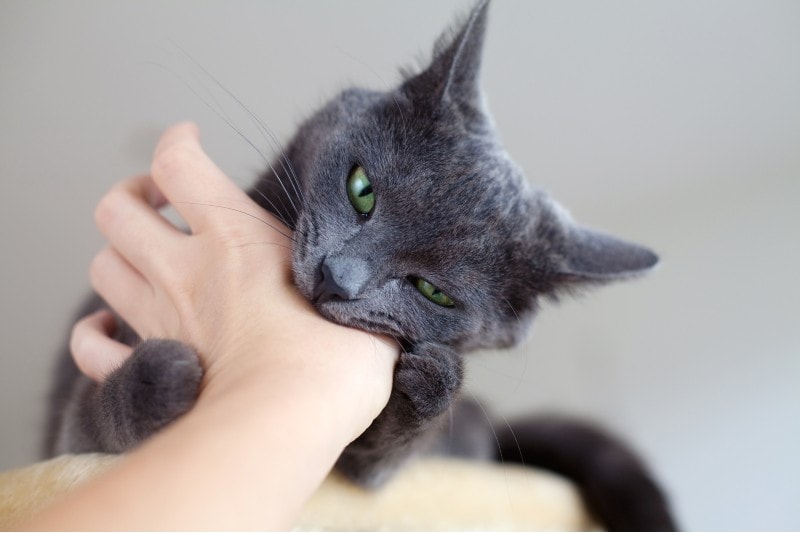
5. Overstimulation
If your cat has been playing, whether with you or with another cat, and has gotten wound up or over-excited, it could simply be a case of it being overstimulated. This can lead to them trying to bite your hand. As soon as you notice this, you should stop and give your kitty some space.
6. Cleaning
If there is very little connection between teeth and skin, it could be that your cat is trying to groom you as one of their pack. They will wrap their paws around your hand to keep it in place and make the grooming easier, but the teeth might get in the way which means it could feel like an intentional bite.
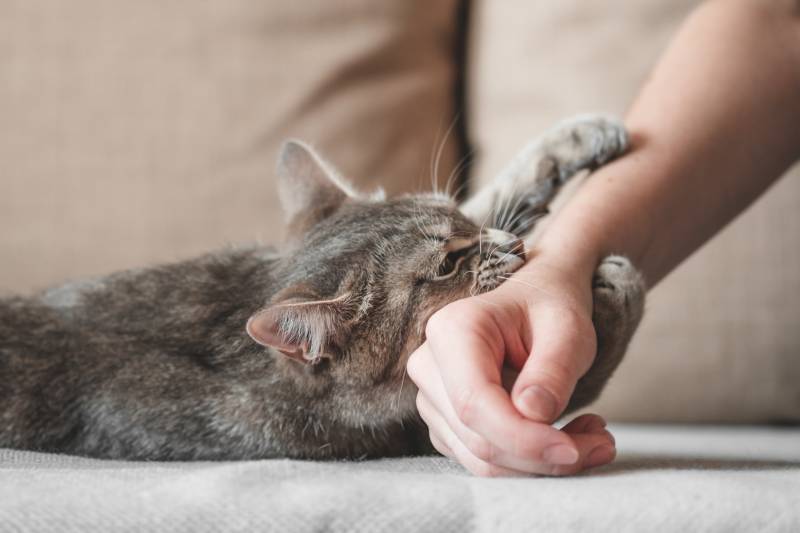

How to Stop Hand Biting
You should never smack or slap your cat, and you should avoid shouting at or scolding them for the behavior. The cat is trying to communicate something to you, and the best way to stop hand biting in the future is to identify what the cat is trying to tell you, look for signs it is going to happen again, and then avoid the bite. Look for physical signs of irritation, such as your cat’s ears flattening or their tail twitching and swooshing. If your cat wraps their paws around your hand, this can be an indication of what is to come, too.


Conclusion
Hand biting isn’t an uncommon trait in cats and while it can be a sign of aggression, it is more likely to be overstimulation, or your cat simply wanting to play and not knowing that biting isn’t an acceptable behavior. There are other potential reasons for this activity, too, and the key to determining why your cat bites your hand is to look for other clues and to take in context.
Your cat might be trying to clean you and groom you, letting you know that it doesn’t want its belly tickled, or it could be overstimulated from an intense play session just before the biting incident.
Featured Image Credit: Julia Pavaliuk, Shutterstock
